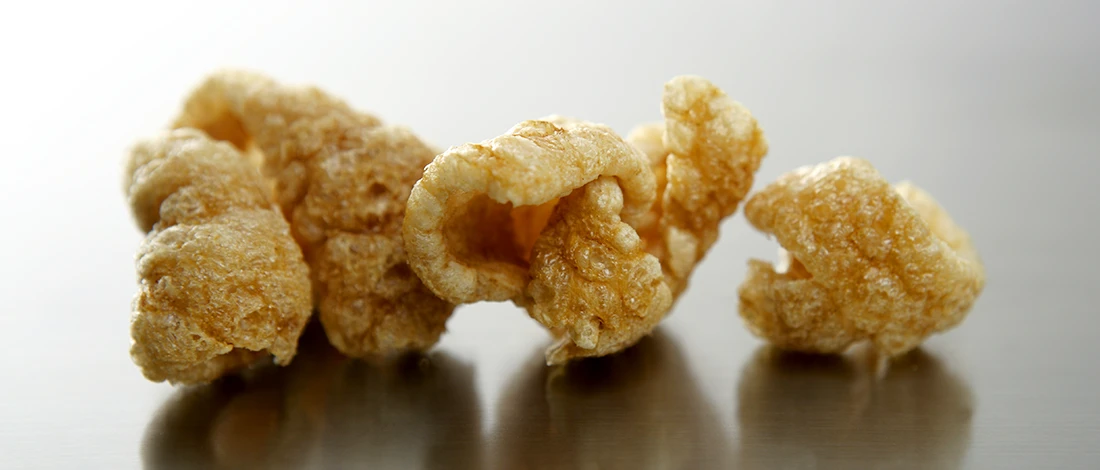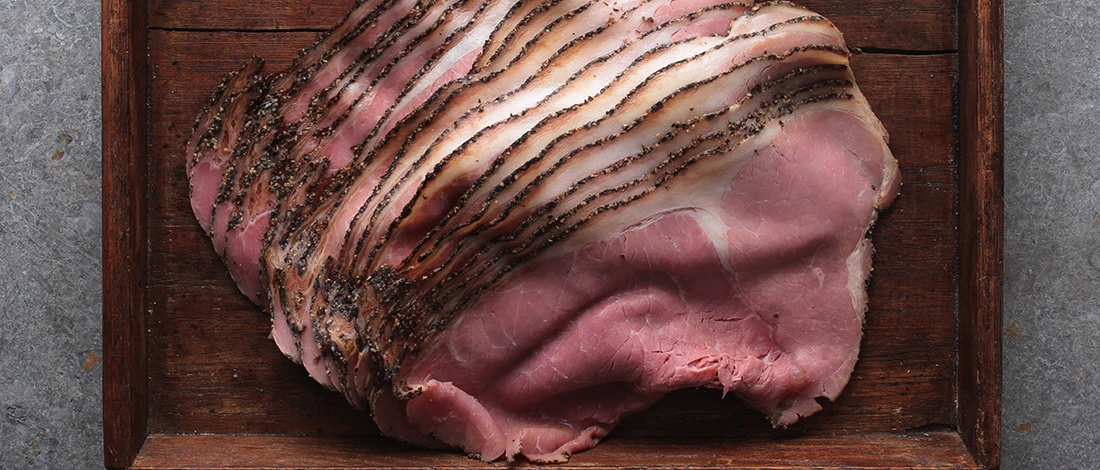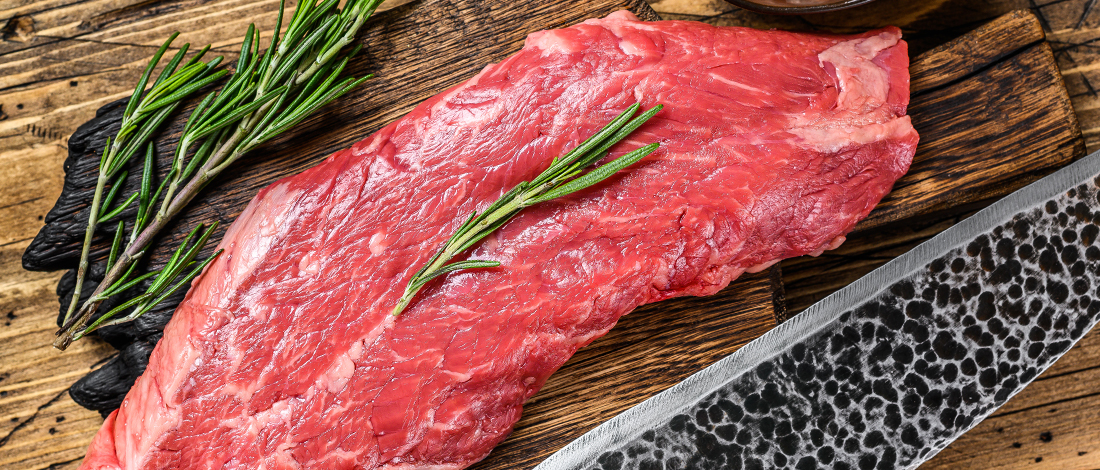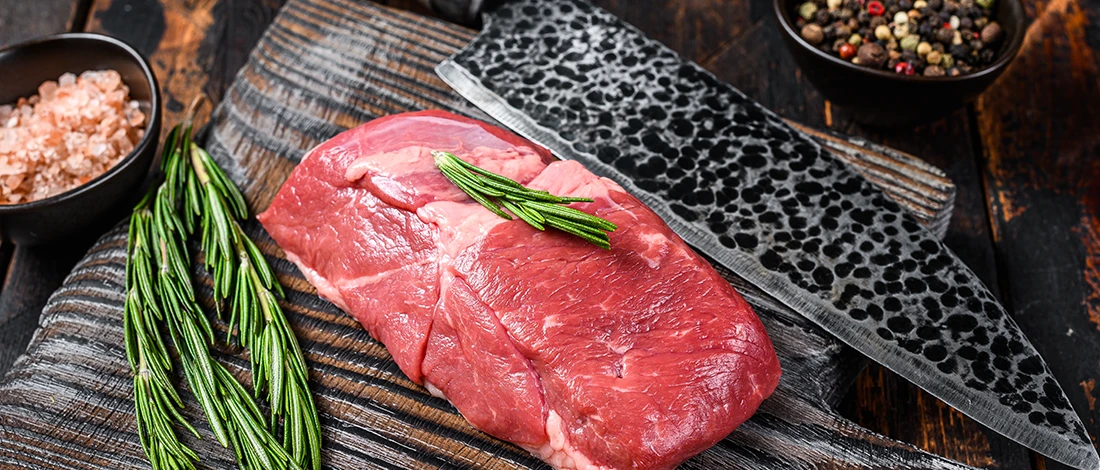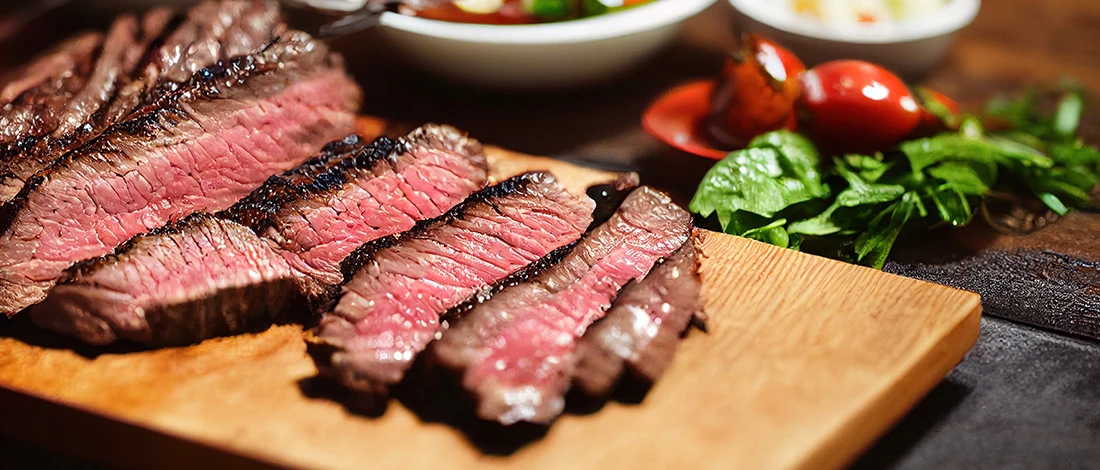If you're a meat lover like me, you've probably seen and tried corned beef sandwiches at any Jewish or Irish restaurant.
But what exactly is corned beef, how is it made, and is it healthy?
As a nutritionist with over ten years of experience in the food industry, I explored the nutritional aspects of corned beef.
I spent four weeks looking into in-depth corned beef research and talked to my dietician to get answers to these questions.
Here's everything I found out.
Quick Summary
- Corned beef is not considered a healthy choice due to its high saturated fat and sodium content.
- It provides protein, iron, and other nutrients but also contains preservatives and nitrates.
- Consuming corned beef in moderation is advised, and healthier alternatives like pastrami and grilled beef are available.
- If you're looking for an authentic place to order your corned beef for the next traditional St. Patrick's Day dinner, here's my tried and true meat delivery recommendation.
Is Corned Beef Healthy?
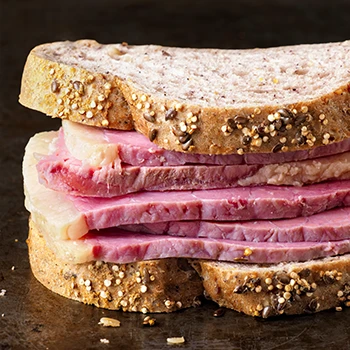
Corned beef is not typically considered a health-conscious choice. When consumed regularly, it is high in saturated fat and sodium, contributing to heart problems and high blood pressure.
Corned beef is salted cured meat. The meat is heavily salted and refrigerated in a spicy corned beef brine solution before cooking it.
Additionally, the curing process used in corned beef involves preservatives and nitrates, which may have health risks.
After the brining process, the corned beef is super tender. And that's why it's mostly served as sandwich slices or meat slices with cabbage.
The primal beef cuts, round and brisket, are used in many corned beef recipes, as these tough steaks are best simmered over moist heat.
The texture and flavor of good corned beef briskets are pretty tender, moist, and salty.
Corned Beef Nutritional Profile

Corned beef is protein and fat-packed and provides vitamins and minerals.
Eating 100 g of cooked corned beef provides a lot of essential nutrients, including protein, iron, and fiber [1].
Here’s how many nutrients you can expect to find in one serving:
- Proteins: 18.2 g
- Calories: 251 kcal
- Saturated fat: 19 g
- Fiber: 0 g
- Iron: 1.86 g
- Sodium: 973 mg
- Carbs: 0.47 g
- Vitamin B6: 0.23mg
- Vitamin B12: 1.63 mg
A serving of corned beef contains more than one-third of the daily value of sodium. The higher sodium concentration is high because of the brine salt, which helps to tenderize the flesh.
Another common ingredient in commercially prepared corn beef is sodium nitrite. Although it raises the salt concentration, its primary use is as a preservative in processed meats.
Sodium nitrite prevents the growth of germs that lead to foodborne disease, preserving freshness [2]. The nitrite also gives the meat its distinctive pink color when it interacts with the proteins in beef.
You'll notice that your homemade corned beef is more grayish than pinkish. It's because we usually use ordinary pickling salt instead of sodium nitrite.
4 Health Benefits of Corned Beef

Here are some of the health benefits of eating corned beef.
1. It's Protein-rich
Protein is a crucial component for the synthesis of muscle tissue. Including adequate protein in your diet can help your body heal the tiny rips that exercise causes in your muscles, resulting in stronger muscles overall.
About 33% of your daily protein requirements are met by the 18.2 grams of protein in corned beef.
2. Boosts Nervous System Health
Vitamin B12, a micronutrient essential for maintaining healthy nervous system function, is abundant in corned beef [3].
I recommend you go for fresh corned meat instead of canned corned beef to reap more of this benefit.
3. Boosts Immunity
Zinc is abundant in briskets of corned beef. According to studies, zinc is essential for metabolic processes, immune system development, and wound healing [4].
4. Prevents Anemia
The iron in corned beef is sufficient to prevent anemia from iron deficiency.
Our body needs this element for healthy growth and development. In addition, the body utilizes iron to make the oxygen-carrying hemoglobin found in healthy red blood cells [5].
3 Potential Health Side Effects of Corned Beef

Let's look at some potential side effects of overeating corned beef.
1. High Sodium Intake
The high salt content of corned beef, which raises blood pressure, is one of its gravest problems. Therefore, you should refrain from overeating corned beef if you have hypertension.
"Corned beef may not be suited for individuals who require a low-sodium meat diet because a single serving contains almost 36% of the daily sodium value."- Sarah Garone, Registered Dietetics Technician
2. Increased Cholesterol
Corned meat comes from meat/beef, meaning it contains a lot of saturated fats and cholesterol. If you eat more corned beef, you increase your risk of getting cardiovascular disease due to its high cholesterol levels.
3. It's Processed Meat
Because corned beef brisket is processed red meat, it can lead to several illnesses, such as type 2 diabetes, atherosclerosis, and hypertension [6].
I recommend that you eat corned beef in moderation to avoid any risks.
Healthy Alternatives to Corned Beef
Here are some of my favorite healthy alternatives for corned beef:
- Pastrami: This rich and salty meat may be an excellent substitute for corned beef when making sandwiches or a slice of cold meat spread with sauces and chutneys.
- Grilled Beef: Grilled beef is a great way to satisfy your beef cravings. It's simple to make and more nutritious than corned beef. Also, if you have leftovers, you can store them well and save them for later.
- Ham: Ham has a lighter, less robust flavor and texture than corned beef, but deli meat may work well in a cold spread or a sandwich.
How is Corned Beef Made?
Corned beef is made during a five to eight-day curing process.
These spices and herbs are added to accentuate flavor and season corned beef during curing.
- Garlic
- Dried red pepper
- Black pepper
- Bay leaf
- Corriander
- Cinnamon
- Mustard seeds
- Dill
- Fennel
- Brown sugar
Also, the pickling spices are packed with the same ingredients used during preparations to maintain a steady flavor.
When making any corned beef recipe at home (from scratch), I marinate one beef brisket in a large pot of salt water and spices for about 6-7 days before simmering until cooked.
I prefer to use brisket as it's fattier and gives me a moister corned beef than other primal beef cuts.
If you have any cooked corned beef leftovers, refrigerate them well, and you can eat them for three to four days.
FAQs
Is Corned Beef Healthier Than Beef?
Corned beef is not healthier than beef. Since it's processed red meat, it has less nutrient concentration and more additives than real meat.
Is Corned Beef Good for Your Body?
Corned beef is good for your body if eaten in moderation.
Is Corned Beef Processed Meat?
Corned beef is considered processed food. It's cured for seven days in a brine solution.
References:
- https://fdc.nal.usda.gov/fdc-app.html#/food-details/170200/nutrients
- https://www.fsis.usda.gov/food-safety/safe-food-handling-and-preparation/meat/hams-and-food-safety
- https://www.ncbi.nlm.nih.gov/pmc/articles/PMC6930825/
- https://www.mayoclinic.org/drugs-supplements-zinc/art-20366112
- https://ods.od.nih.gov/factsheets/Iron-Consumer
- https://www.hsph.harvard.edu/nutritionsource/2018/03/23/how-meat-is-cooked-may-affect-risk-of-type-2-diabetes/

